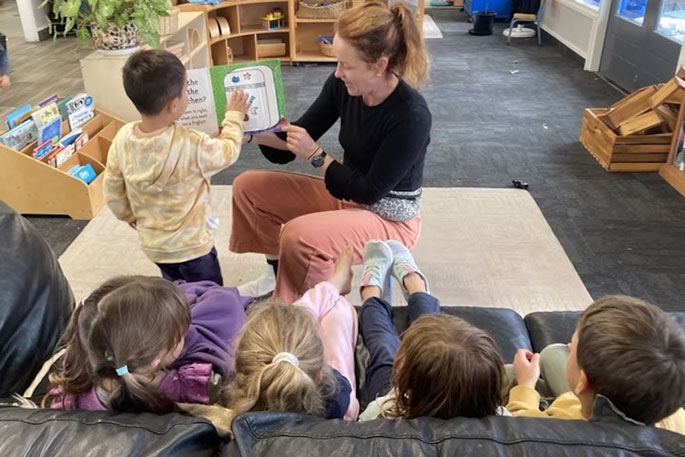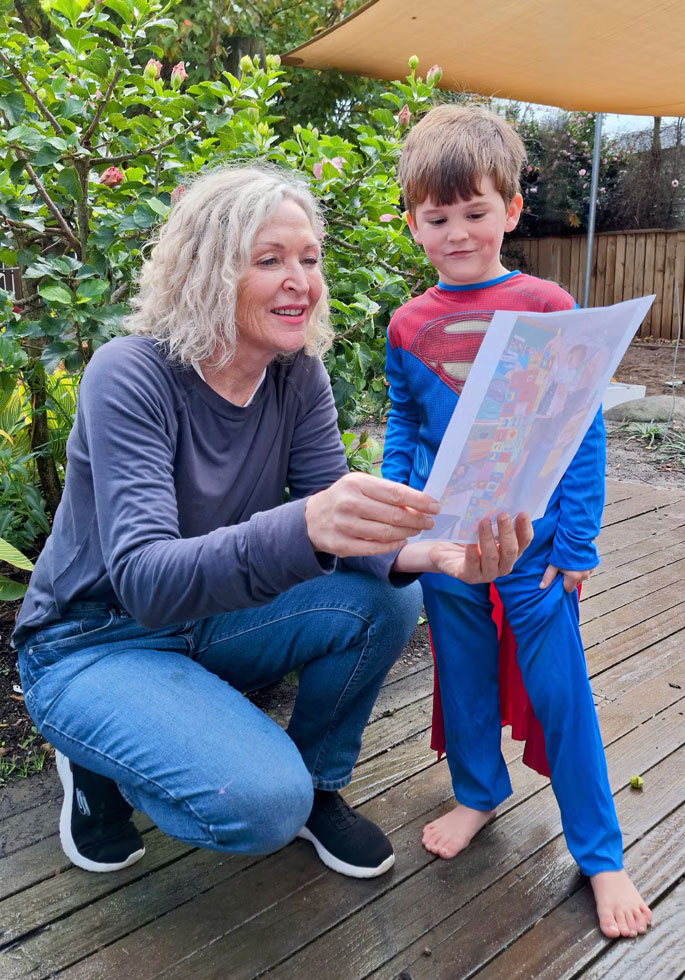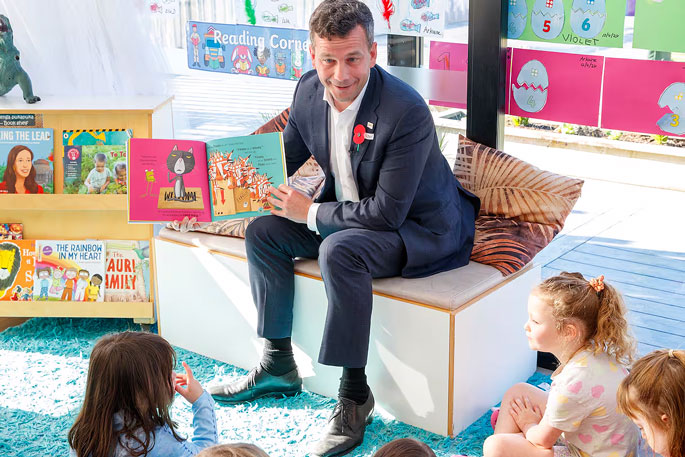Kindergarten teachers fear good educators will leave the sector after proposed regulatory changes.
Regulation Minister David Seymour’s announcement to look at removing regulations managing the need for a new early childhood centre has some teachers up in arms.
The potential changes include scrapping a regulation in place from February last year that required a Ministry of Education sign-off to open a new early learning service based on whether the centre was needed and where new ECE services should be.
Network management is an application process for ECE service owners intending to open a new centre where the Ministry of Education could monitor the demand for new centres in each area.
Some teachers feared that under the proposed changes, centres would pop up on “every street corner”, creating competition as they offered incentives to parents that kindergartens and smaller ECE centres couldn’t keep up with.
But others said removing regulations created more choices and increased affordability for parents as centres cost less to open.
Seymour says: “Choice is the key word here. No one is forcing parents to send their children to ECEs. The Government is simply making it easier and more affordable to, should they wish to do so.”
Tauranga kindergarten teacher Rachael Murphy says making it easier to open centres “didn’t sit right” with her, as the sector becomes more “profit-driven” rather than focussing on education.
 Rachael Murphy is an early childhood teacher in Tauranga.
Rachael Murphy is an early childhood teacher in Tauranga.
“If you are not an educationalist and instead a businessperson, you don’t necessarily see the value in providing quality education.”
She says some teachers she knows working in profit-focused centres are “stretched thin” because they are not given enough time to document children’s learning.
The lack of no-contact time meant teachers spent “hours” outside of normal working hours doing unpaid paperwork and planning meetings.
“Some of these teachers aren’t fully qualified either so there’s the issue of them not having the ECE theory or professional knowledge to draw on,” says Murphy.
Claire Davison, who has been involved in education for 44 years, says the teachers working in some for-profit education and care centres are paid little compared with kindergarten teachers, who are part of a union.
 Claire Davison has worked as a teacher for more than 40 years.
Claire Davison has worked as a teacher for more than 40 years.
“If you want to make a profit, the cheaper staff you can employ the better, so you’re getting a lot of underpaid and underqualified teachers.”
She says the Government needs to pull its focus away from funding individual people in the planned family boost tax rebate and instead pool the funding into the not-for-profit centres.
“It’s well accepted that good quality early childhood education has a big impact so it makes sense for [the] Government to be funding it. It’s an investment in the future.”
Marion Dekker, senior teacher at Inspired Kindergartens, says it can be harder for teachers in some of these private settings to maintain some of the necessary quality education indicators.
“Professional development, non-contact time for teachers to prepare lessons and documenting children’s learning - all of these things cost money,” she says.
“What happens in a private setting is that time for teachers will get eliminated or compromised.”
She fears profit-driven businesses will “pop up on every corner”, compromising children’s ability to attend services that provided a more education-centred approach.
“It creates a highly competitive market which is driven by profit margins.”
Parent Vanessa Millar, who spoke at a public meeting held by NZEI Te Riu Roa, says it's “a really scary time” for parents as she feared “profit being a driver”.
Millar, who has a three-year-old daughter, says choosing the right centre means staying away from places that view her child as “another number in the system”.
Former Education Minister and Tauranga-based Labour list MP Jan Tinetti says the Government needs to make sure teachers are being paid at the right rate and none of the funding is being used for “alternative purposes”.
“There’s no overarching policy to say private centres need to pay their staff at a certain level,” she says.
Tinetti says removing regulations will “put pressure on every centre”.
“They are having to compete with larger for-profit centres who can offer more price incentives to parents because of the scale of economy.
“If you’re a centre, you’re not going to open where it’s a lower socio-economic area because you’re not going to get the income from those parents because they can’t afford it.
“We don’t allow that to happen in the schooling centre so why should early childhood be a competitive model?”
Early Childhood Council chief executive Simon Laube says it rejects that ECE centres are solely profit-motivated.
“Many New Zealand services are run by ex-ECE teachers who are passionate about young children and whose values and drivers do not change just because their name is above the door,” Laube says.
But Tauranga & Childcare Sales managing partner Linda Harley says the proposed changes will be “positive” as it becomes easier for centres to open.
“If a tenant has lost their licence and is being forced to close because of non-compliance, then that landlord has had a vacant centre for someone to reopen.
“The network management is putting unnecessary cost and time for someone to reopen and re-establish that business.”
Seymour says removing rules “taking up time but didn’t make sense” was important to deliver affordable choices for parents.
“ECE services provide families and parents a choice to confidently leave their children in the care of others so they can work, study or volunteer.
“It is particularly an enabler for parents who want to rejoin the paid workforce.”
“The repeal of Person Responsible and Network Management regulation are both steps in the right direction and remove impractical restrictions to centres operating efficiently and serving their communities,” Seymour said.
Tauranga MP Sam Uffindel says there has been “urgent calls” from the sector to review the regulation, partly due to cost, availability and complexity.
“The review will include, but not be limited to, education, health, safety, child protection, food safety, buildings and workplaces as they relate to the early childhood education sector,” he says.
Ministry of Education hautū (leader) operations and integration Sean Teddy says if the provisions are repealed, anyone wanting to operate a new service is still required to apply for a licence and meet regulations.
- About 1000 early childhood centres (ECCs) and 50 kindergartens have opened across Aotearoa in the past 10 years but proposed new rule changes to make start-ups easier and increase competition have sparked controversy.
- Some kindergarten teachers say the move is profit-driven not education-focused and designed to favour private providers they believe pay qualified staff less.
- The row has highlighted working conditions and pay parity issues amid fears the quality of childcare will drop.
- Teachers were overall dissatisfied with the direction of early childhood education after the Government scrapped Labour’s proposed 20 hours of ECE funding for 2-year-olds, the pay parity scheme and not making changes to the teacher-to-child ratio.



1 comment
Who's qualified to make these decisions
Posted on 18-06-2024 18:03 | By Ajs
I'm just wondering how many children the people who are Pro deregulation have themselves
Leave a Comment
You must be logged in to make a comment.